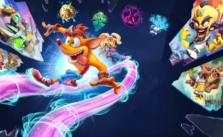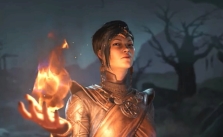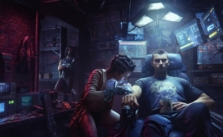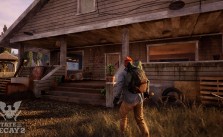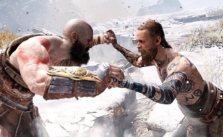A Splinter Cell Retrospective: Can Modern-Day Ubisoft Revisit a Classic?

At the time of the original Splinter Cell game’s release in 2003, Ubisoft was already an established publisher in the video game industry. In 2003 alone, they published over 50 games, including movie adaptations like the Charlie’s Angels beat ‘em up, licensed TV show games like Batman: Rise of Sun Tzu (based on Batman: The Animated Series), as well as their own, in-house developed games that would go on to be classics like Ghost Recon, Rayman 3, XIII, Prince of Persia: The Sands of Time, and Beyond Good & Evil.
I played all of these games, including Splinter Cell on their original releases, and each one was a singular, unique experience that has stayed with me well into adulthood. I only mention that because, as a former Ubisoft super-fan who has kept tabs on the publisher and its many studios over the years, I don’t believe that the Ubisoft of today is capable of making the kind of games that built them into what they are now.
Long before they were embroiled in multiple lawsuits regarding harassment and misconduct, Ubisoft created a true competitor to the stealth-action crown that was held at the time by the Metal Gear Solid series. That game was Tom Clancy’s Splinter Cell, a revolutionary espionage thriller that pushed the boundaries of technology with its dynamic lighting system. In this game, stealth was less about hiding in lockers and avoiding vision cones, and more about shrouding yourself in complete darkness while sneaking up on unsuspecting enemies. It would solidify the core tenets of the Splinter Cell series, and go on to win many awards for its graphics, writing, and gameplay. Michael Ironside, the Hollywood actor who brought Sam Fisher to life with a distinct voice and personality, also contributed to the story of the series and fully embodied the character.

A mere year later, Splinter Cell: Pandora Tomorrow was released. While it didn’t feature many notable changes to gameplay outside of a few helpful maneuvers like the SWAT turn and being able to shoot your pistol while hanging upside down, it did feature a more engaging story with several memorable set pieces. Who could forget the iconic train mission, that had you clambering along the side of a high-speed train while avoiding being seen? But, perhaps the greatest addition Pandora Tomorrow brought to the Splinter Cell franchise was the Spies Vs. Mercs multiplayer mode.

The third game was released the following year, cementing Splinter Cell as a yearly series while somehow being released to great acclaim with every iteration. Splinter Cell: Chaos Theory is my personal favorite, and featured a massive leap in graphical quality, enhanced animations, and an incredible soundtrack by Amon Tobin that remains one of the best video game soundtracks of all time. The campaign also one-upped the other games by having a more globetrotting adventure that took you to levels in Peru, Panama, Korea, and Japan.
Splinter Cell: Double Agent was released in 2006, and was a featured release for the new Xbox 360 console, though it was made available on previous generation consoles as well. Being made for a new generation of hardware, it had far superior graphics and more immersive mechanics like the trust system, in which you had to gain and maintain the favor of both the terrorist agency you were infiltrating, as well as Third Echelon, the shadowy government agency you completed missions for throughout the series.

After an excruciating four-year hiatus, Splinter Cell returned as a reinvented third-person action game in 2010, with an emphasis on quick movement and takedowns rather than the careful sneaking of previous games. This was a fairly large departure from what the games had come to be known for, but I would say it worked out in Ubisoft’s favor, Splinter Cell: Conviction is an incredible experience from beginning to end, with a story that kept me engaged rather than being a “terrorist is building a weapon” storyline that kind of fades into the background. Conviction also included the Archer and Kestrel co-op campaign that meets the main campaign in terms of quality and fun.

After Conviction, Splinter Cell seemed to take a back seat to Ubisoft’s new Assassins Creed series, which carried Splinter Cell’s stealth concepts and combined them with the swordplay and parkour of the Prince of Persia games. After three years and three Assassins Creed games, Splinter Cell returned with Splinter Cell: Blacklist, an even more action-oriented game that alienated some fans by having Sam Fisher voiced by Eric Johnson rather than the iconic voice of Michael Ironside, who was battling cancer during development. Blacklist introduced many new features, including an upgradeable heli-carrier that would serve as your base of operations in between missions.

Ubisoft has remained mostly silent on the series since Blacklist’s release almost a decade ago, with rumors swirling of a new entry every couple of years or so. Just a few months ago, renowned video game writer Alanah Pearce described why a new Splinter Cell game might not be what fans want, saying, “You don’t want what Ubisoft would currently make as a Splinter Cell game. It just can’t exist anymore”, citing Ubisoft’s intense focus on microtransactions and monetizable live services over engaging single-player games, and how the very basic form of stealth present in every Ubisoft game being released is preferable to them over the more deliberate stealth of the older Splinter Cell games.
I would tend to agree, as I haven’t personally bought a Ubisoft game since Ghost Recon: Wildlands in 2017, which I promptly had refunded. I returned the game because I had spent 20-30 hours in Assassins Creed: Origins, and upon booting Wildlands, I noticed that many of the mechanics were lifted from Origins, such as the enemy encampment clearing and the recon drone that looked and acted just like the hawk from Origins that you use to scope out areas. This resulted in Wildlands feeling more like a re-skinned Assassin’s Creed with guns rather than its own unique game, much to my dismay.
So when a remake of the original Splinter Cell game was announced shortly after Alanah’s comments, I was less than enthused. Could a modern remake of the original game be successful when the company has evolved over the years to re-use mechanics rather than create the new and innovative games it was once known for? I’m not entirely sure. I have hope that it can be something that will deliver what fans have been waiting for, but the embattled Ubisoft of today might be too corrupt to recapture that classic single-player spirit. Hopefully, at the very least, it won’t have microtransactions. We can only hope.


